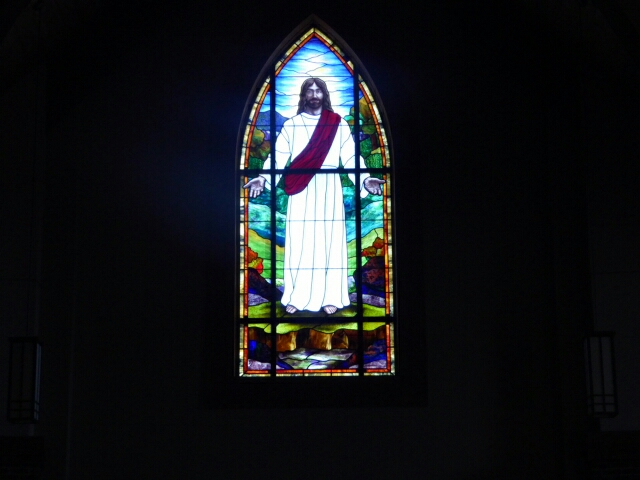Editor’s Note: Pastor Scott Peterson continues to share a daily devotion by several of his favorite authors.
Devotions written by Arndt Halvorson
inspired by P. T. FORSYTH
PETER TAYLOR FORSYTH was a theologian, pastor, and educator whose fiery preaching and provocative writing stirred Great Britain from 1874 until his death in 1921. For a number of years after his death he was forgotten, but since 1940 he has been “rediscovered” and has been studied by many of today’s church leaders and theologians. Born and educated in Scotland, he combines Scottish toughness and gentleness, practicality and mysticism, with an openness to the world outside–mainly German, Scandinavian and French thought.
Since he was a pastor for 25 years, he does not write to systematize his thought, but to apply it to our daily lives. Thus, his theology has a personal “bite” which gets us involved as participants, not spectators. His writings seem current, addressing the great questions of our time–such issues as authority, how to read the Bible, prayer, the cross and its significance and the call to holiness by a Holy God.
Arndt L. Halvorson (1915 – 2006) was my preaching professor at Luther Seminary where he taught homiletics (preaching) for 24 years. When Arndt dressed-up he wore cowboy cut suits, with a string tie and cowboy boots. He had a passion for the gospel and his bluntness in communication was engaging. One day in my preaching lab Arndt said, “Some of the best sermons I ever heard were preached without notes. And, all of the worst sermons I ever heard were preached without notes.” –Pastor Scott
Christ Owns the Future
by Arndt Halvorson
“Our first need is for a positive theology. A positive theology is an evangelical theology. Positive means moral in the great evangelical sense not an influence but a new creation, not a career opened for the race but a finished thing. Positive Christianity first adjusts us to the holy and then creates the holy in us. It is evangelical because it does full justice to the one creative principle of grace.”
P.T. Forsyth
The late Hubert Humphrey said in an address to pastors: “Why don’t you ever write me about what you’re for? All you write me about is what you’re against.” It is so easy to find fault, to point out what is wrong in the name of religious opinions But the nagging voice of criticism has never built anything that mattered.
By dying on the cross, Jesus demolished-shattered-the power of the negative. Death has no more power over us, nor does the devil, nor sin. This means that the future is as bright as the promises of God. Christ makes each day a new day-in every respect. When he died he died once and for all. “It is finished,” he said on the cross.
By rising from the dead, he created a new form of life. This new life is not stoicism, the grim ability to endure life. This new life is not ecstasy, that high-pitched emotionalism which enables us to float over life’s problems. This new life is the confidence that the risen Christ owns the future, has hold of me, and is with me in everything The new creation is a new dimension. It is fact, not mere fancy or mood. Thus we may groan under life’s burden even as we live free from burdens.
Positive theology, then, is the calm confidence in the truth of the Christ story. This story supersedes all others. If the story seems to demand more of us than we can find in us, it performs a radical miracle within us. The story creates in us a desire to live for and under Christ as Lord. This desire is the key-soon we find that we are living under his lordship.
Lord Jesus, we thank you for bothering us through the years with your challenge to a higher life, and we thank you for giving us both the desire and strength to live this new life. Amen.

